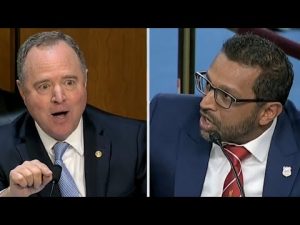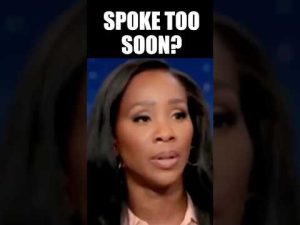In a recent discussion on Fox News’s The Five, a contentious debate unfolded that highlighted the ongoing struggle to address violence and accountability within political circles. The exchange featured an enlightening confrontation between Jessica Tarlov and Greg Gutfeld, capturing the frustration many conservatives feel about the persistent “both sides” narrative. Gutfeld’s spirited rebuttal to Tarlov’s attempt at equivalence resonated deeply with viewers seeking clarity amid the often muddled discourse surrounding political violence.
This incident underscores an important question: why does it seem that violence is more frequently associated with the left than the right? Many conservatives argue that this perception is because left-leaning media outlets often minimize or ignore such incidents, instead focusing on pushing narratives that deflect blame equally across the political spectrum. The response from Gutfeld was a refreshing refusal to entertain the notion that political violence is an equally bipartisan issue, insisting that the same scrutiny and accountability must apply to all sides, without resorting to the superficial crutch of “whataboutism.”
The case brought up involved a woman, Melissa Hortman, whose tragic demise became a focal point in these debates. The issue at hand, as Gutfeld passionately pointed out, is not about whether or not people knew of her before her death but rather about the selective amplification of certain narratives. Conservatives argue that the media’s focus and outrage are often dictated not by the facts of the case but by the political angle that can be exploited. If the perpetrator’s political leanings don’t fit the progressive narrative, coverage tends to be minimized or twisted to fit preconceived notions.
One crucial aspect highlighted by this discussion is the importance of having all the information before jumping to conclusions. Conservatives often advocate for a comprehensive understanding of events to avoid hastily assigning blame based on incomplete narratives. This is a call for fairness and accuracy, urging people to take a step back and assess situations without the looming shadow of political bias distorting the truth.
Ultimately, the dialogue on The Five reflects a broader cultural battle. The insistence on examining incidents with a critical eye and refusing to placate the simplistic “both sides” argument signifies a demand for integrity in media reporting. It’s a reminder of the need for balanced perspectives, where the facts lead the narrative rather than preconceived political agendas. This push for accountability and honesty in how political violence is addressed is essential in fostering a healthier and more genuine discourse in today’s fractious political landscape.







